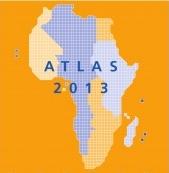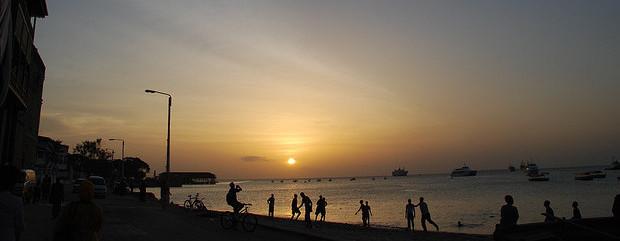African Energy Atlas 2013: oil, gas and renewables to the fore – By Magnus Taylor

 Cross Border Information’s African Energy Atlas 2013 has just come out. What does is tell us about the continent’s energy reserves, production and future prospects?
Cross Border Information’s African Energy Atlas 2013 has just come out. What does is tell us about the continent’s energy reserves, production and future prospects?
This annual publication is largely comprised by a selection of maps detailing everything from major continental rail and road connections, patterns of political risk, energy infrastructure, country-by-country power supply, oil and gas reserves and downstream hydrocarbons markets. Maps are drawn/updated annually by “˜journalist mapmaker’ David Burles and an introductory piece describes the process of production as requiring the application of investigative techniques to obtain even the most basic data. Information on the continent’s energy environment has been built up using “not only maps, but also press releases, news report and good old-fashioned journalistic legwork”.
The broad impression the Atlas gives is that the African energy environment seems rather dynamic at present. For oil and gas, North Africa – which the atlas generally looks at as sub-region – continues to recover (or negotiate) the hangover from the Arab Spring, particularly in Libya and Egypt with Algeria and to some extent Tunisia also impacted by the new political order and disruption associated with this.
Supplying power to their populations is seen as being an important test for North Africa’s new set of rulers. In this regard, subsidy reform is seen as being essential. In, for example, Libya, the power grid requires extensive maintenance after neglect under the old regime.
The atlas argues that Sub-Saharan African needs to improve its regional interconnectedness in the power sector. A start would be increasing the effectiveness of regional power pools such as SAPP (Southern Africa) and WAPP (West Africa).
On the west coast, Nigeria remains the continent’s biggest oil producer despite delays in the long-awaited Petroleum Industry Bill. Production remains below the level achieved prior to rumbling insurgency in the Niger Delta. Angola – West Africa’s second biggest oil producer – is gaining interest in its pre-salt potential (similar to that which has produced finds off the Brazilian coast).
Moving on from the established powers, East Africa is proving to be of great interest with oil finds in Uganda’s Albertine Rift and big gas discoveries off the coast of Tanzania and Mozambique. Tullow Oil has been particularly prominent in Uganda, North West Kenya and hopes to have similar success expanding exploration in Ethiopia’s Southern Rift. Tullow’s operations in East and Central Africa have gained a degree of publicity recently due to its legal wrangle with Heritage over capital gains tax.
In general, the continental upstream sector is quite dynamic with optimistic exploration also taking place in countries as diverse as Mauritania, off the Namibian coast and in Madagascar (after moves too end recent political deadlock there).
Renewables
It’s interesting to note that the African Energy Atlas devotes a short but significant section to the renewables sector stating that “wind, solar and geothermal energy are losing their niche status”. This is particularly evident in the large-scale hydro-electric schemes characterised by Ethiopia’s Grand Renaissance Damn on the Blue Nile – a project that has raised the ire of Egypt’s new regime, whose bellicosity and paranoia over upstream Nile waters projects has been well demonstrated of late.
The East African Rift is being explored for its geothermal potential, whilst South Africa is attempting to prove that renewables – mostly solar and wind – can make a significant contribution to its own power needs.
The plan to dam the River Congo with the Inga III project (as reported by Africa Confidential) signifies an ambitious and politically significant project for the country’s somewhat beleaguered Kabila regime. If the government, with its private sector partners, is able to raise the finance, it will have the capacity to provide electricity to a great swathe of southern Africa.
Magnus Taylor is Editor of African Arguments.





